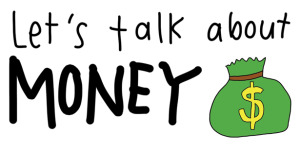It seems everywhere I go these days, I am hearing, “That’s Awesome!” I am a huge fan of encouragement and excitement. I am even a fan of hyperbole from time to time. When I looked it up, I found the definition to the word:
Awesome: extremely impressive or daunting; inspiring great admiration, apprehension, or fear.
Maybe I am just hard to please (probably), and I feel like the things we are praising with Awesome just aren’t. Do they really inspire awe? Do those everyday events truly cause a stunned silence, a wonderment, a reverence for the moment? Not likely.
Choose the right word
One of the things I feel strongly about is using words correctly. Very possibly, this relates to the fact that my parents are well educated and my mother is an educator. She taught in the school system for many years, then brought her practice home to teach kids who were struggling. It was pretty inspiring to see the droves of kids over the years come in struggling and leave triumphant.
I think there are two aspects to using words properly.
- Only use words you understand. In the Princess Bride, Inigo Montoya says, “You keep using that word. I do not think it means what you think it means.” I believe using a word incorrectly is worse than not knowing the best word to use. If you don’t know that “just right” word, string a few others together to convey your meaning.
- Learn more words. I love to learn new things and there are many times I start with the attitude, “there must be a word for this.” Most of the time that is true and I can find it on Google or through friends that are smarter than I. If you want to learn more words as a habit, start with A Word A Day. Today’s word is Mata Hari, in case you were wondering.
Experience Awe
Although this sounds like a diatribe on word usage, what inspired me to write this was the actual experience of awe. I felt it and realized I couldn’t call it “awesome” even though it truly was. It just didn’t seem to pack the punch I wanted it to. There will come a day I will write about that awe-inspiring event, but in the meantime here are a few places you might look for awe.
- Nature. Our God has created a pretty amazing world. Go look at it with the intent of being amazed and inspired. Whether that be the vastness of the plains, the size of the mountains, or the delicacy of a flower.
- Transparency. When people really open up and share their heart it is, well, awesome. To see someone push past the fear and awkwardness and expose themselves to you is to see their beauty and power in a way rarely seen. When that happens, be fully present even if it is uncomfortable.
- Greatness. When someone does something great, enjoy it. There is no need to judge them, or yourself, for their activity. Just revel in it. I enjoy watching sports for this reason. Last week, we attended a high school football game and saw a truly great pass and catch. It was amazing to watch these young men push their bodies to new levels of performance. Granted that play was by the other team and they scored against us, but there is no reason that should diminish my appreciation for the act itself.
Your Next Move
Since this blog has two thrusts, you have two action items this week!
First, pay very close attention to the words you use. Do they convey your meaning precisely? If not, use a different word, even if that means you have to go find it first.
Second, spend some time looking for things that are truly AWESOME…and get absorbed in that moment. Those times leave an indelible mark on your soul.



